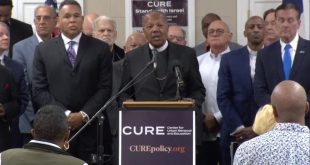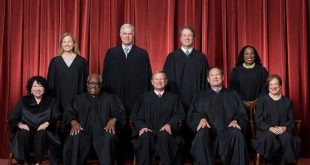A three-judge panel of the U.S. Court of Appeals for the Tenth Circuit in July ruled against Lorie Smith, a Christian graphic artist who does not want to provide services contrary to her religious beliefs about marriage.
The Colorado Civil Rights Commission interprets the state’s so-called anti-discrimination law as requiring business owners to use their artistic talents to create custom work they find objectionable. The same agency harassed Christian baker Jack Phillips after he declined to use his artistic talents to make a custom cake for a homosexual “wedding.” He won the argument before the Supreme Court in 2018.
The 10th Circuit contended that the Colorado law, which would penalize Smith for declining to provide services for a homosexual “wedding,” for example, and also bar her from stating her reason if it’s religious, “satisfies strict scrutiny, and thus permissibly compels Appellants’ speech. We also hold that [the Colorado law] is a neutral law of general applicability, and that it is not unconstitutionally vague or overbroad.”
In his dissent, Chief Judge Timothy Tymkovich wrote that the Constitution “neither forces Ms. Smith to compromise her beliefs nor condones the government doing so. In fact, this case illustrates exactly why we have a First
Amendment. Properly applied, the Constitution protects Ms. Smith from the government telling her what to say or do.” He added that “the majority holds that the more unique a product, the more aggressively the government may regulate access to it—and thus the less First Amendment protection it has. This is, in a word, unprecedented.”
Smith filed a pre-enforcement challenge in 2016, but a federal court upheld the law. She appealed to the 10th Circuit when she lost in a lower court. Now Smith has appealed to the U.S. Supreme Court. From her legal counsel, Alliance Defending Freedom (ADF):
The 10th Circuit issued an unprecedented decision in the case, 303 Creative v. Elenis, holding that Colorado’s Anti-Discrimination Act both forced Lorie “to create websites—and thus, speech—that [she] would otherwise refuse,” and also created a “substantial risk” of removing “certain ideas or viewpoints from the public dialogue,” including Lorie’s beliefs about marriage. Despite that, the 10th Circuit said it’s fine for the law to compel Lorie to speak messages with which she disagrees because she created “custom and unique” expression.
“The government shouldn’t weaponize the law to force a web designer to speak messages that violate her beliefs,” ADF General Counsel Kristen Waggoner said. “This case involves quintessential free speech and artistic freedom, which the 10th Circuit dangerously cast aside.”
Photo credit: Alliance Defending Freedom
 CURE News and Clergy Blog News and Commentary for Christians
CURE News and Clergy Blog News and Commentary for Christians



